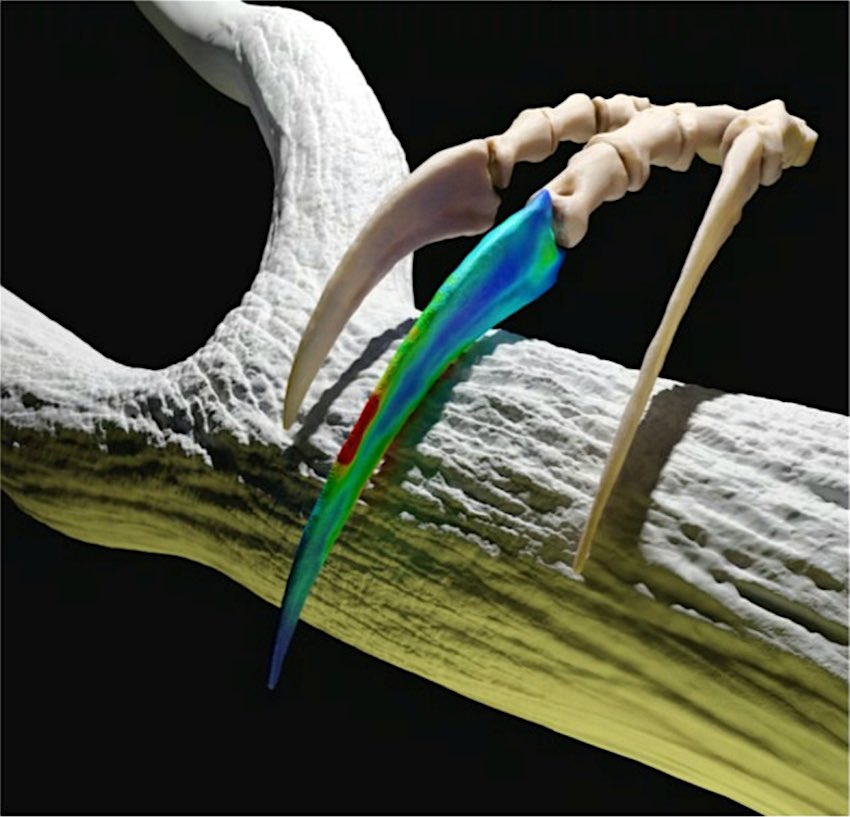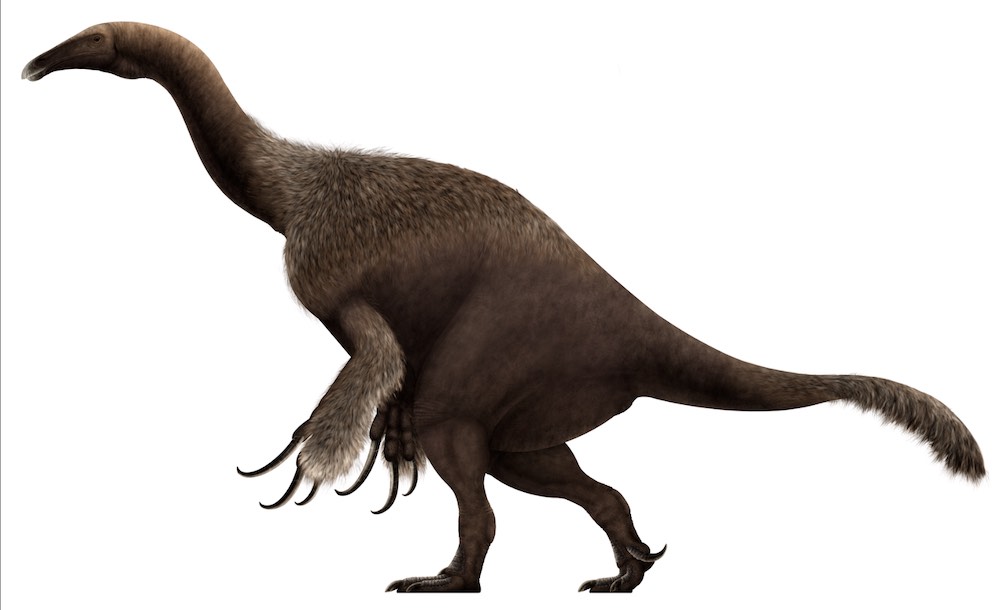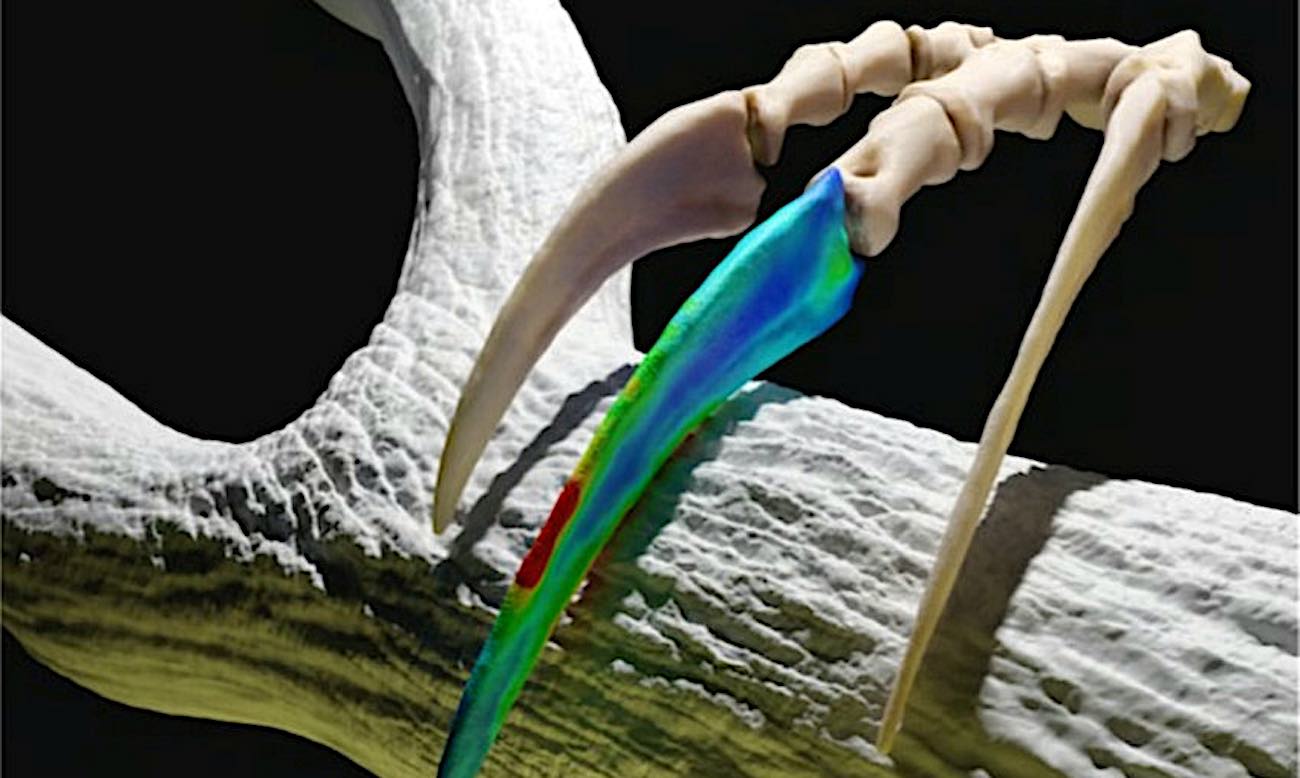
This bizarre dinosaur had the biggest claws ever discovered, showing itself to be like an ‘Edward Scissorhands on speed’, say scientists.
But the purpose of its terrifying talons have remained a mystery—until now.
“Therizinosaurus is famous for its sickle-like claws, each as long as a samurai sword: Edward Scissor-hands on speed,” said Dr. Chun-Chi Liao, an expert from University of Bristol and the Institute of Vertebrate Paleontology and Paleoanthropology who co-authored the study.
“We all saw Therizinosaurus in ‘Jurassic World’ hitting deer and killing the giant predator Giganotosaurus. However, this is unlikely. These long, narrow claws were too weak for combat. Our engineering simulation shows that these claws could not withstand much stress.”
The beast’s terrifying talons were more than three-feet long (1-meter)—but instead of using them to kill its prey, they were used like plumage to attract mates—like Johnny Depp’s razor sharp ‘fingers’ helped attract a love interest in the film co-starring Winona Ryder.
According to the new research, the Therizinosaurus (‘giant claw’) lived 75 million years ago and belonged to the theropods, a group of predominantly meat-eaters that included T. Rex and Velociraptor.
Lead author Zichuan Qin, a PhD student at the University of Bristol, developed computer simulations to identify functions based on detailed computations. Claws were represented in three dimensions from CT scans and modeled for stress and strain using engineering techniques.
“Alvarezsaurs and therizinosaurs are definitely the strangest cousins among dinosaurs,” said Qin’s supervisor Professor Michael Benton. “Alvarezsaurs were the tiniest dinosaurs ever, the size of chickens, with robust single claws, but their closest relative, the therizinosaurs, evolved in the exact opposite path.”
It reached up to 40-feet long and six tons in weight. Roaming conifer forests on the edges of the Mongolian desert, it ate plants and meat, using its long neck to stretch for leaves on tall trees.

“Not all therizinosaur hand claws were so useless in combat, but most other related species could use their claws as powerful hooking tools when feeding on leaves from the trees,” said Dr. Liao. “So we conclude the largest claws of any animal ever were actually useless in mechanical function, and so must have evolved under sexual selection to be used in display.”
WATCH: How Texas Man Found Huge Dinosaur Tracks in Riverbed Dried From Drought
The team concluded that the adult Therizinosaurus could wave the claws at a competitor and effectively say, ‘Look at me; back off’—or wave them around in some way like a peacock displaying its tail to attract females for mating.
Therizinosaurus also had weird feet, resting on four toes while standing and walking. Most theropods only had three.
“Science and technology cannot bring dinosaurs back to life, but advanced computing and engineering techniques can show us how extinct animals lived,” said Bristol University Professor Emily Rayfield, co-author of the study published in the journal Communications Biology.
“Especially for extinct animals like alvarezsaurs and therizinosaurs, they are so bizarre that we even can’t find any living animals like them.
“Luckily, advanced technology can help us to simulate, on a computer, the functioning of extinct animals using fundamental engineering and biomechanical principles.
“This study shows very well how selection for function can lead to the emergence of specific, sometime very bizarre, forms.”
SHARE With Dinosaur Fans on Social Media…




















